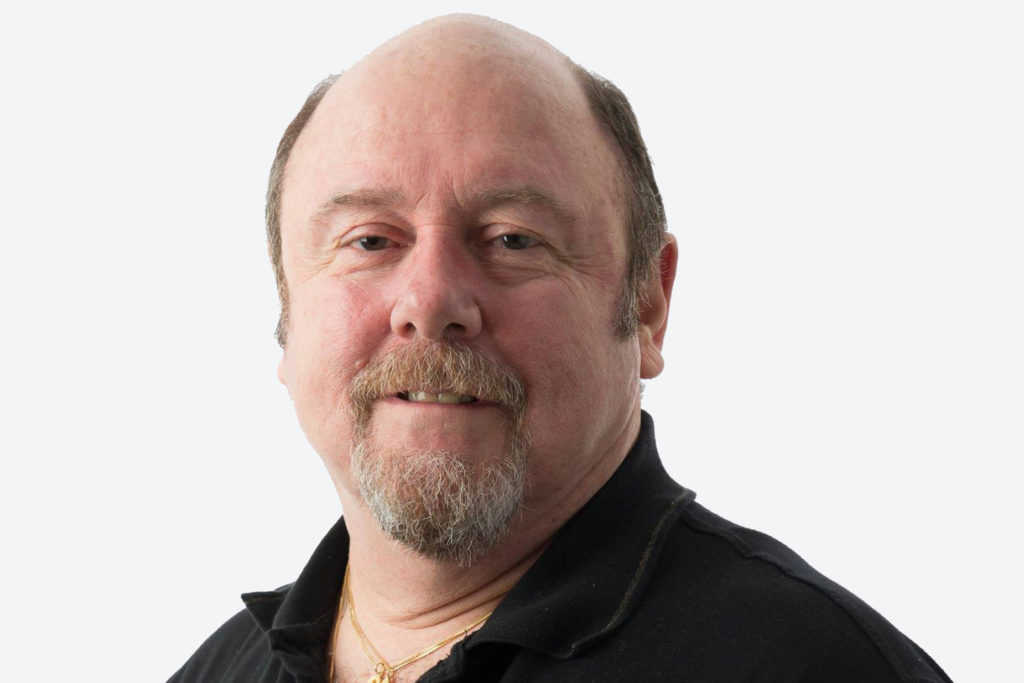Paul Tschudi, an assistant professor of health sciences and an alumnus of the Graduate School of Education and Human Development, died April 7 in a house fire in the District. He was 73.
Tschudi joined GSEHD’s faculty more than two decades ago and served as the founding director of the school’s Grief, Loss and Life Transitions Graduate Certificate. Faculty and students who knew Tschudi said they will remember him as a “true collaborator” who was authentic and compassionate.
Tschudi was the former executive director of the Wendt Center for Loss and Healing and previously owned a private grief counseling practice. He was also a Vietnam War veteran, having served as a medic.
Tschudi and his dog died in an accidental fire in his Northeast D.C. home, D.C. Fire and Emergency Medical Services officials said. Officials are still investigating the cause of the fire and whether there were working smoke detectors in his home.
Rebecca Dedmond, an associate professor of counseling in GSEHD, said she met Tschudi more than 10 years ago at a school faculty meeting when they were both professors, and they bonded over their shared interest in helping others make major life transitions in school and careers.
She said many students viewed Tschudi as their favorite professor, and his class on grief and loss was the most popular in the program. She said he often reminded students and colleagues to take care of themselves amid the demands of teaching and learning.
“He was helping us to learn to take care of ourselves and not to lose sight of it,” Dedmond said. “If we’re not taking good care of ourselves, we’re not going to be a whole lot of use to others.”
Sylvia Marotta-Walters, a professor of counseling, said Tschudi was already teaching at GW when she started in 1992, and she met him when he first proposed his grief class to the counseling and human development department. She said he had a passion for counseling and said she learned from Tschudi to always advocate for those who are marginalized.
“Paul was an ever-present colleague and friend to me,” she said in an email. “He had a great sense of humor and such a positive outlook on life that he just naturally engaged with us all, colleagues, staff, students alike.”
Scott Beveridge, an associate professor of counseling, said he met Tschudi in 2007 when he started teaching at GW. He said he always enjoyed working with Tschudi and that they shared interests in helping veterans deal with their wartime trauma and injuries, especially given Tschudi’s service during the Vietnam War.
“He dedicated his life to our country and then later to GW,” Beveridge said. “He made a positive impact on me in my life and my career and is going to be sorely missed.”
Beveridge said he never saw Tschudi upset or frowning. He said he can still picture Tschudi smiling and laughing during the lunches that they spent together.
“He was the kind of guy that nothing really seemed to bother him,” Beveridge said. “He always had an optimistic outlook on life and a happy personality.”
Suzy Wise, an assistant professor of psychology at Valparaiso University and a GSEHD alumna, said she met Tschudi in 2010 when she took one of his graduate counseling classes at GW.
She said Tschudi was the most “authentic, compassionate and kind” professor she had in her decades as a student. She said he helped people through their grief, which was never a burden for him.
“The best lesson Paul ever taught anybody is to be human and to struggle through the hard stuff, so you can be there for the really good stuff,” Wise said.
Daniel Minot, a 2015 graduate from GSEHD’s master’s program in school counseling, said he met Tschudi in 2013 after taking his grief and loss class. He said his classes and personal experiences with Tschudi left an “indelible mark” on his life and professional career as a counselor.
Minot said he and Tschudi continued to keep in contact after graduation, and Tschudi’s impact extended beyond the classroom. He said after his father’s unexpected passing, Minot and his wife – both GSEHD alumni – met with Tschudi for support touched by his “compassion” and “empathy” through their conversations.
“His role as a mentor really extended beyond the classroom,” Minot said. “I really felt like he kind of went above and beyond the call of duty as a faculty member and as a mentor.”
Minot said Tschudi has a ‘“tremendous” legacy in counseling through his work at GW and in the District. He said Tschudi’s lessons on grief and loss can help his friends and family navigate through his death.
“He was everyone’s go-to when they lost somebody, and now he is gone,” Minot said. “Maybe some of us can rest assured knowing that he provided us the tools and the strategies for coping.”
University spokesperson Crystal Nosal said members of the University are mourning Tschudi’s passing. She said he previously consulted with the University on developing curriculum in end-of-life care fields and was a “sought-after” speaker on issues of grief, loss and life transition.
“He was a caring, kind and generous colleague and friend who will be truly missed,” she said in an email.








